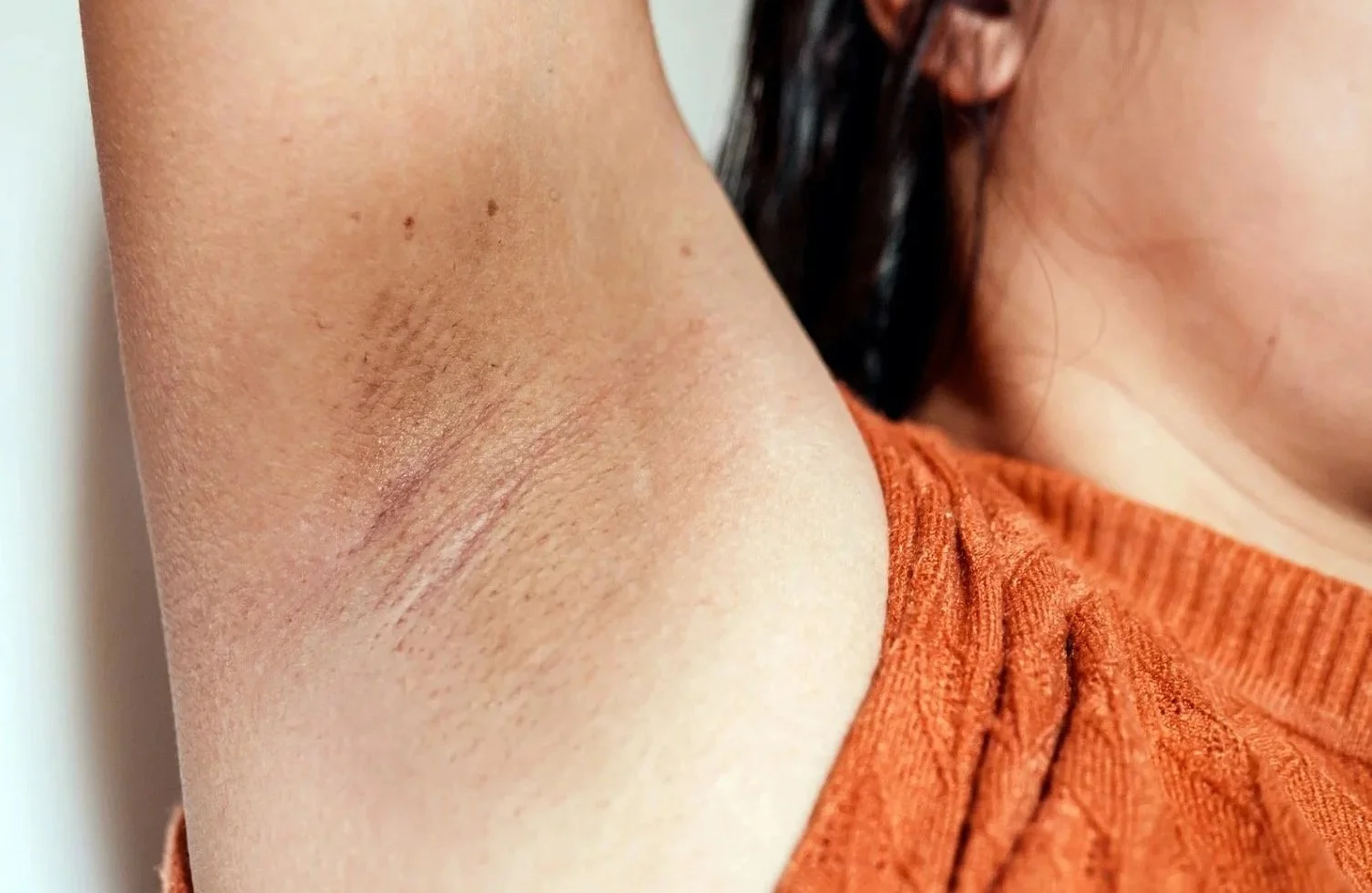Acanthosis nigricans
What is acanthosis nigricans?
Acanthosis nigricans is dark, thick, velvety skin that most often appears on the neck, armpits, groin, or under the breasts. While it doesn’t itch or hurt, it can be noticeable and bothersome for many people.
Why do I have acanthosis nigricans?
Acanthosis nigricans is commonly linked to insulin resistance, which is common in diabetes and obesity. It can also run in families, and certain medications may trigger it. The condition appears more often in people with darker skin types, causing skin to look darker, thicker, and velvety.
How do I fix acanthosis nigricans?
Acanthosis nigricans is hard to treat, but you can definitely improve it. It usually takes weeks to months (take before-and-after photos to track progress). The most important step is improving insulin resistance, which is best done by eating healthier. Switching as many meals as possible to whole-food, plant-based options helps insulin resistance, supports diabetes control, and may even reverse insulin resistance, diabetes, and diabetes-related symptoms.
BEDTIME ROUTINE:
Apply a very thin layer of urea 10% cream (you can increase to 20% if tolerated)
Then apply a very thin layer of adapalene gel (Differin, Effaclar, AcneFree, or ProActiv)
Then cover with a thick layer of Vaseline or CeraVe cream
MORNING ROUTINE:
Apply a very thin layer of urea 10% cream (you can increase to 20% if tolerated)
Then apply a very thin layer of adapalene gel (Differin, Effaclar, AcneFree, or ProActiv)
Then cover with a thick layer of Vaseline or CeraVe cream
Additional tips:
Daily omega-3 supplements may help.
Mild chemical peels (or salicylic acid) can also improve skin texture—just follow bottle directions closely.
What if my acanthosis nigricans isn’t getting better?
Most people improve with the steps above, but sometimes stronger treatment is needed. A board-certified dermatologist can prescribe more potent creams or discuss cosmetic options like chemical peels or laser treatments. If you are in or near Utah, see one of my excellent colleagues at the University of Utah or me virtually with Honeydew.
DISCLAIMER
The statements expressed and content of this website are not intended to be a substitute for professional medical advice. Readers should seek their own professional counsel for any medical condition or before starting or altering any treatment, exercise, or dietary plan. Please see our full disclaimer here.

